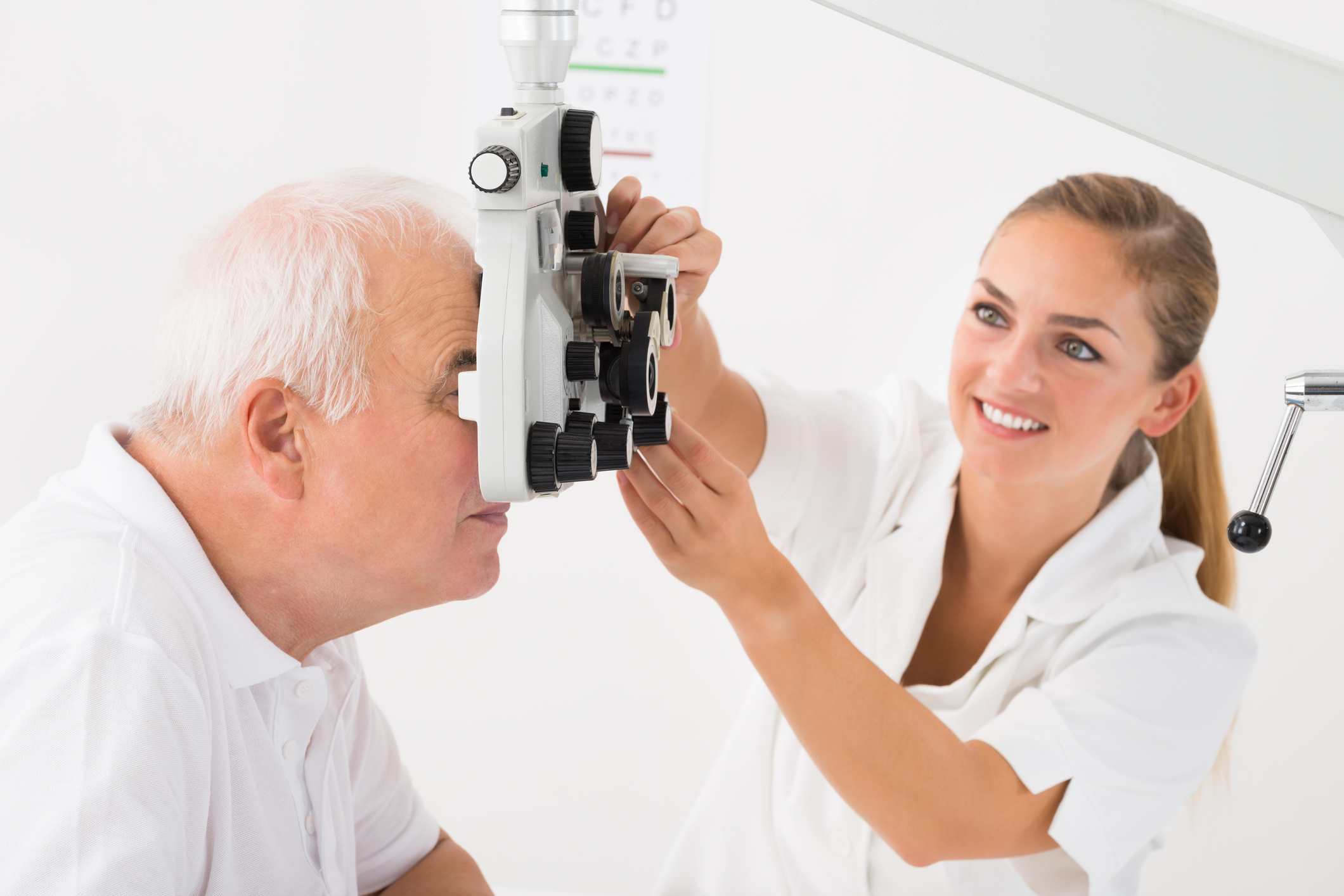As most people age, their vision needs change. Complications often arise and getting expert care from an optometrist is critical. There are many diseases of the eye which become more common with aging. Some of these diseases do not give rise to signs or symptoms (e.g. glaucoma and early macular degeneration). There are also “normal” changes of vision with age in which our eyes are not as sensitive as previously. These include changes in:
-
- – Visual acuity (detail vision)
-
- – Contrast sensitivity (ability to detect lower contrasts)
-
- – Colour vision
-
- – Glare sensitivity and dark adaptation
As the visual system adapts to these changes, we are often not aware of them. Additionally, our glasses or contact lens prescription changes more over the age of about 60 years. Poorer vision is also associated with some general life implication. People with poorer vision have more falls, more clinical depression, experience less independence and privacy, more social isolation, decreased cognitive function and decreased quality of life. So, optimizing vision can help to alleviate these systemic and life changing conditions.
Yet 75% of vision loss is preventable or treatable. Therefore, at age 65 and older, adults should have an eye exam at least once a year, but only about 43% actually do. A comprehensive eye health examination is the key to preserving your vision and making it last a lifetime. Regular exams conducted by your optometrist give you peace of mind in knowing that your eyes are being treated by an eye health professional who can identify potential health issues early. Early identification and treatment of conditions that can often have no visible symptoms is key to protecting your sight.
Older adults who live in assisted living environments or long-term care are more at risk of poor vision and less likely to receive eye care. Up to 90% of this population have reduced vision or an eye disorder, and much of this is correctable or treatable. So, it is important to remember eye care for our older relatives. Another population group which frequently does not receive eye care includes those with dementia. Yet, improved vision can improve cognitive functioning and behavior in this group. An eye examination is possible, even when someone may have limited ability to co-operate. The optometrist can use objective and simple measures to assess vision.
Adults aged 65 or older are at a higher risk for the following common eye conditions and diseases that can threaten sight:
Presbyopia: a natural effect of aging in which the ability to focus on close objects decreases over time. Although the process of loss of focus starts early in life, it starts to impact normal reading at about 45 years. Presbyopia can cause headaches, blurred near vision and the need for more light while reading and sore eyes.
Cataracts: distorted or cloudy vision caused by the lens inside the eye losing its transparency over time. Cataracts can require changes to your glasses or surgical removal.
Diabetic Retinopathy: a weakening or swelling of the tiny blood vessels in the retina of your eye and the growth of new blood vessels resulting in blood leakage and other changes. If diabetic retinopathy is left untreated, blindness can result.
Macular degeneration: a disease that results in degenerative changes to your central vision and is a leading cause of vision loss among older adults.
Glaucoma: a silent thief that often has no symptoms until significant damage has occurred. Glaucoma is associated with elevated pressure within the eye and can lead to serious vision loss if not detected and treated at an early stage.
How can an optometrist help?
As you age, you become more susceptible to changes in vision and eye health issues. The Ontario Association of Optometrists recommends that every senior receive an eye exam once a year, to detect any problems with vision and eye health before they impact your life. Optometrists will treat and manage any vision problems, eye diseases and conditions to make sure you are able to continue living a safe, independent and active lifestyle. To find an optometrist near you, visit findaneyedoctor.ca.
This article comes courtesy of the Ontario Association of Optometrists (optom.on.ca).






Add Your Voice
0 Comments
Join the Discussion